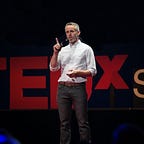A disease may be rare, but finding answers should not be.
Every day, over 300 million families across the globe wake up to another battle against rare diseases.There are over 7000 known rare diseases, with more being discovered all time. While these conditions may be individually rare (i.e. less than 1/200,000 people), when you put them together, having a rare disease is all too common. The average time to diagnose a rare disease is over 7 years, and over ⅓ of children with a rare disease won’t live to see their 5th birthday. In fact, rare diseases account for approximately 35% of deaths in the first year of life, and this has got to change.
The good news is, that I see a beacon of hope on the horizon. With the $1000 genome announced last year, we really are at the dawn of a new era in genome-guided medicine, and I truly believe that the healthcare tides are finally changing.
However, our current diagnostic methods are often supremely inefficient, and there is a large inherent problem with searching for a diagnosis one gene at a time. Doctors first have to come up with multiple possible diagnoses, aka the differential diagnosis, order one or more individual genetic tests, and then wait. We wait to see if the doctor’s hunch was correct. If the tests come back negative, which they often do, we still have no answers and are out thousands of dollars. Far too many undiagnosed patients are suffering while waiting for answers, but we now have the technology to change this for a myriad of individuals and families.
A couple of years ago, while working at Intermountain Healthcare, I remember seeing a young girl with an undiagnosed neurodevelopmental condition. The microarray was negative. I sent off for a couple of traditional single-gene tests (two at a time because I was impatient), for what I thought were the most likely syndromes. Both came back negative, but the bill was thousands of dollars. I thought to myself, “This is crazy — never again will I sequence just one gene at a time when I can now sequence all 25,000 genes for even less money.”
This is already happening in some healthcare specialties. Oncology has been the first field to really adopt next-generation sequencing for precision medicine, but the rare and undiagnosed disease community is following suit.
Take the work of Dr. Kingsmore at Children’s Mercy as an example. He showed the benefits of rapid whole genome sequencing in the NICU, the most expensive place in the world to spend a night.
- >4 million babies are born each year in the United States.
- 1 in every 20 babies born is admitted to the newborn ICU.
- Up to 1/3 of babies admitted to a newborn ICU have genetic diseases.
Thousands of single-gene diseases have been characterized, but traditional genetic testing is only available for some of them. Even if they were available, how does a physician pick the right ones? Plus, most of them cost hundreds, even thousands of dollars each, with a turnaround time of weeks not days. At least 500 of these genetic diseases have a known treatment, so it’s not hard to see how rapid turnaround next-generation sequencing can save time, save lives, and save suffering. We need this to happen.
The Director of the US National Institute of Child Health, Alan Guttmacher, said last year:
“One can imagine a day when every newborn will have their genome sequenced at birth, and it would become a part of the electronic health record that could be used throughout the rest of the child’s life both to think about better prevention but also to be more alert to early clinical manifestations of a disease.”
I don’t know how far off this day is, but I think it’s up to us to decide. We need precision medicine for rare and undiagnosed diseases. We need sequencers in pediatrics hospitals and even rare disease clinics.
Eventually, sequencing will become widespread, likely occurring at birth. And while there’s an abundant amount of work left to do, I also feel incredibly optimistic about the time we’re in. This truly is the beginning of a new chapter in personalized medicine, with so many resources at our disposal. It’s up to all of us — passionate stakeholders with ideas and purpose — to band together, double up our efforts, and continue to rally for rapid progress towards a more individualized, genome-guided approach to undiagnosed disorders.
To participate in the discussion, please join us on June 17th for our inaugural Virtual Ground Rounds in Pediatric Genomic Medicine. This is the first of many educational webinars as part of a new program for the healthcare, academic and advocacy communities. I’ll present the story of Leah, a 2-year-old girl with a history of early onset epileptic encephalopathy and multiple medical and neurodevelopmental comorbidities, and show how exome sequencing was able to provide a genetic diagnosis, opening up a new chapter in the family’s journey.
Let’s help patients and families with rare and undiagnosed diseases get answers, support and direction.
Let’s help researchers understand disease mechanisms, and move towards more and more treatments.
Let’s help end the diagnostic odyssey.
